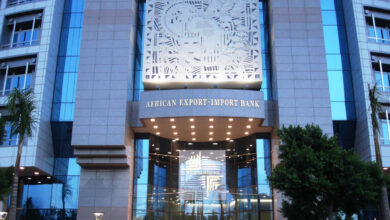Money Doesn’t Grow on Trees: How Policy Decisions Risk Scaring Off Investors in Ghana

A growing debate over how Ghana manages investor relations has resurfaced following concerns raised by Bright Simons of IMANI Africa.
Simons, in his analysis of the Black Volta goldmine dispute, warned that Ghana risks eroding investor confidence if its leaders fail to reconcile their rhetoric about attracting foreign investment with their handling of sensitive business matters.
Money Doesn’t Grow on Trees
He argued that while some believe Ghana can unilaterally dictate the terms of investment because its mineral resources belong to the state, the reality is far different.
“Money doesn’t grow on trees,” Simons cautioned, noting that foreign investors bring not only capital but also technology and know-how that are not always available locally. Even economic powerhouses such as Japan, South Korea, and China, he added, had to deliberately court investors during their early stages of growth.
Investor Relations and Ghana’s Image
According to Simons, Ghana’s leaders must make a clear choice: either accept that foreign investors are vital for mobilising capital and technology and therefore safeguard Ghana’s international reputation, or abandon costly roadshows and tours aimed at wooing them.
This dilemma mirrors recent tensions in the broadcasting and telecommunications sector. The Minister of Communications and Digitalisation, Samuel Nartey George , recently directed MultiChoice Ghana, operators of DSTv, to reduce subscription prices by 30 percent, citing the strengthening of the cedi and mounting consumer complaints about affordability. The South African broadcaster in response, denied that cuts were feasible. The company offered to freeze prices and suspend repatriating revenues to its South African headquarters, with the sector minister calling that illogical.

The DSTv Saga
The directive was welcomed by some subscribers who felt overburdened by rising subscription fees. However, industry analysts and business observers warned that such unilateral actions risk sending the wrong signals to investors. MultiChoice, part of a pan-African group with operations in over 50 countries, has argued in the past that subscription rates are influenced by multiple factors, including content acquisition costs, taxes, and exchange rate volatility not just the value of the local currency.
Analysts caution that while protecting consumer interests is important, government directives perceived as heavy-handed may discourage foreign firms from committing new investments. For an economy that is actively courting capital through international roadshows, the inconsistency can be damaging.
Striking a Balance
Experts say Ghana must strike a careful balance: upholding fair competition and consumer protection without undermining investor confidence. Repeated instances of public disputes with investors whether in mining or telecommunications could fuel perceptions of regulatory unpredictability, ultimately making the country less attractive at a time when foreign capital and technology are critical to economic recovery.
As Simons noted, if Ghana genuinely values international investment, then “its image among investors matters.” Otherwise, its repeated overtures to global financiers risk ringing hollow.




